ENGAGE
The Engage Pillar of the Foundation’s work is focused on individuals and families living in poverty, below the ALICE Survival Budget threshold, or returning home from incarceration in the 10-parish Capital area. The Foundation has identified key programs to support within five streams of work: Financial Resiliency, Healthcare Utilization, Recidivism Reduction, Capacity & Collaboration Building, and Systems Change.
The Foundation hosted an informational webinar on July 30 to discuss the grant guidelines and an overview of the application process. The Zoom recording and PowerPoint presentation from the webinar are available. We have made a limited number of 30-minute Technical Assistance Sessions available on August 7, 13, 19 and 21. These sessions are designed for first-time applicants, applicants with specific questions regarding program alignment, or for those seeking more than $100k per year. Please use the Zoom Scheduler to schedule your appointment. It may take up to one hour to receive a confirmation and calendar appointment from Zoom.
FINANCIAL STABILITY
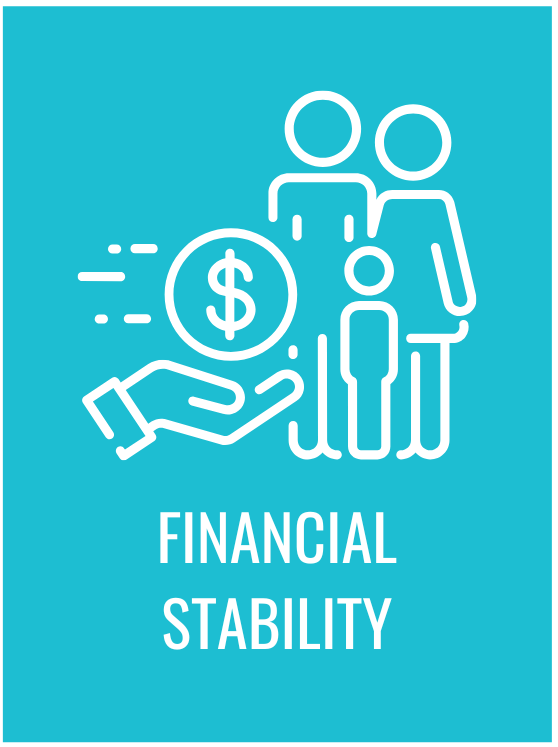 Nearly one-third of residents in the Capital Area are considered liquid-asset poor, according to data from Prosperity Now. Partners aiming to increase financial resiliency will focus on methods to increase financial resilience and stability. This strategy of the Foundation was informed by the Asset Funders Network’s brief Achieving Financial Resilience in the Face of Financial Setbacks. Programs of particular interest to the Foundation provide interventions to bridge financial setbacks, in the form of buffers, borrowing, benefits, and backstops.
Nearly one-third of residents in the Capital Area are considered liquid-asset poor, according to data from Prosperity Now. Partners aiming to increase financial resiliency will focus on methods to increase financial resilience and stability. This strategy of the Foundation was informed by the Asset Funders Network’s brief Achieving Financial Resilience in the Face of Financial Setbacks. Programs of particular interest to the Foundation provide interventions to bridge financial setbacks, in the form of buffers, borrowing, benefits, and backstops.
| Buffers • Financial Education • Financial Coaching • Increased Savings • Individual Development Accounts • Workforce Training |
Benefits • Navigation • Screenings • Registrations • Emergency Assistance • Guaranteed Income |
| Borrowing • Credit Building • High-Interest Loan Avoidance • Debt Reduction • Revolving Loan Funds |
Backstops • Insurance Literacy • Insurance Navigation • Insurance Screenings |
As a result of services, a person can fully meet current and ongoing financial obligations, feels secure in their financial future, and is able to make choices that allow enjoyment in life.
HEALTHCARE UTILIZATION
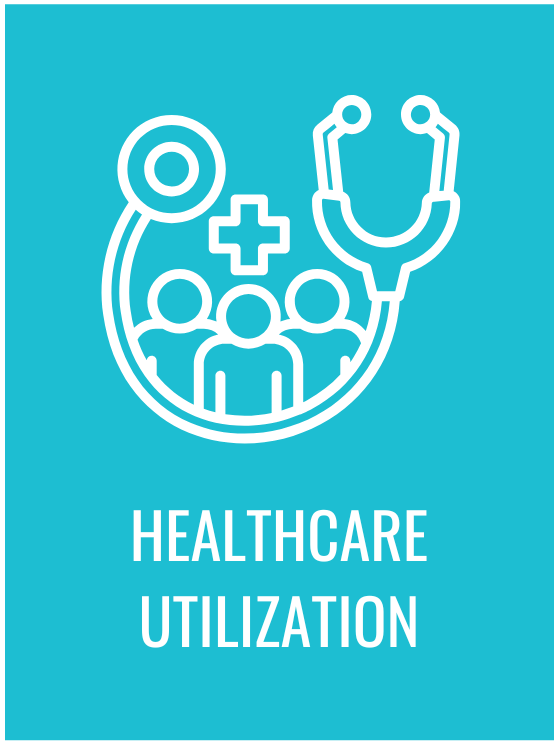 Twenty percent of Capital Area residents are in poor or fair health, according to County Health Rankings. Partners aiming to increase healthcare utilization by families below the ALICE threshold will focus on connecting families to care. The Foundation’s strategy was informed by Barriers to Care Landscape Analysis for the Capital Area Region conducted by the Louisiana Public Health Institute. These connections to care can be direct healthcare management or addressing various barriers to access to care.
Twenty percent of Capital Area residents are in poor or fair health, according to County Health Rankings. Partners aiming to increase healthcare utilization by families below the ALICE threshold will focus on connecting families to care. The Foundation’s strategy was informed by Barriers to Care Landscape Analysis for the Capital Area Region conducted by the Louisiana Public Health Institute. These connections to care can be direct healthcare management or addressing various barriers to access to care.
| Chronic Disease Management • Addiction • Cancer • Diabetes • Heart Disease • HIV/AIDS • Hypertension |
Geographic & Transportation Barriers
|
| Financial Barriers • Benefits Enrollment • Insurance Literacy • Medical Debt Relief |
Mental Health Access • CCBHC Implementation • Co-Occurring Disorders • Suicide Prevention |
| Healthcare Data • Community Health Needs Assessments & Implementation • Healthcare Information Exchanges • Staff Extender Models |
Workforce Shortages • Community Health Worker Expansions • Staff Extender Models • Workforce Pipeline |
As a result of services, a person can fully meet current and ongoing healthcare needs, feels secure in their health status, and is able to make choices that allow enjoyment in life.
SUCCESSFUL REENTRY
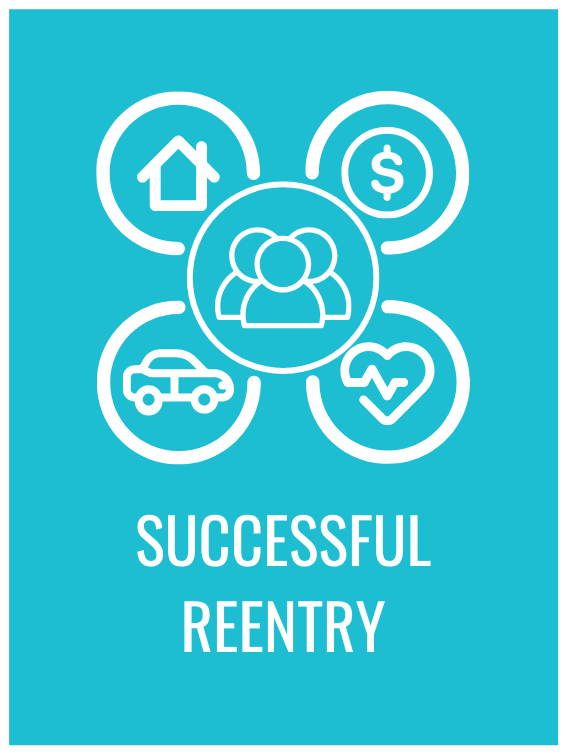 One in three individuals returning home from a Louisiana prison or jail will return to prison within three years of his or her exit, according to the Louisiana Department of Corrections. Partners aiming to decrease the recidivism rate will focus on building out the continuum of care for the formerly incarcerated that reduces barriers to reintegration, including, but not limited to, education, job readiness, life and soft skills, parenting skills, family reunification, faith-based support, mentoring, employment, housing, and health services. This strategy has been informed by ongoing work in the prison reentry space, Louisiana’s Justice Reinvestment Initiative, and the Louisiana Prisoner Reentry Initiative.
One in three individuals returning home from a Louisiana prison or jail will return to prison within three years of his or her exit, according to the Louisiana Department of Corrections. Partners aiming to decrease the recidivism rate will focus on building out the continuum of care for the formerly incarcerated that reduces barriers to reintegration, including, but not limited to, education, job readiness, life and soft skills, parenting skills, family reunification, faith-based support, mentoring, employment, housing, and health services. This strategy has been informed by ongoing work in the prison reentry space, Louisiana’s Justice Reinvestment Initiative, and the Louisiana Prisoner Reentry Initiative.
| Reentry Supports • Education • Employment • Faith-Based Support • Family Reunification • Health Services • Housing • Job Readiness • Life/Soft Skills • Mentoring • Parenting Supports |
Employer Engagement |
As a result of services, a person can fully meet current and ongoing needs, feels secure in their reentry status, and is able to make choices that allow enjoyment in life.
CAPACITY & COLLABORATIONS
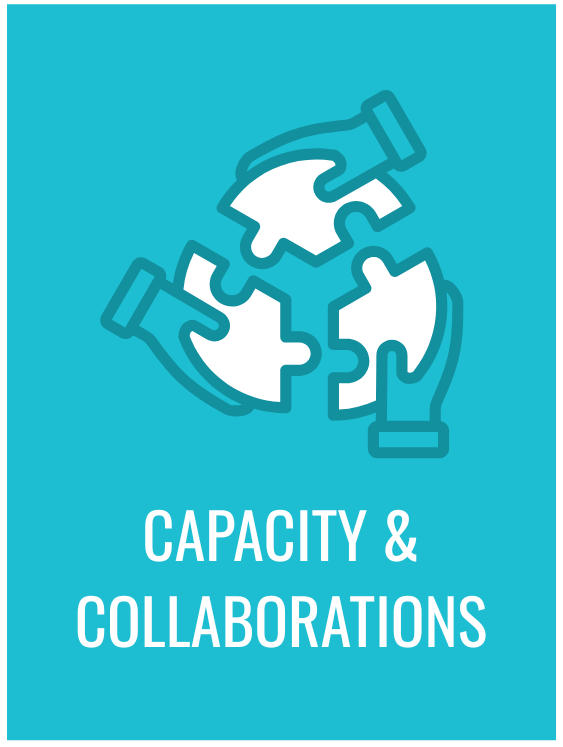 The Greater Baton Rouge area has many nonprofits that are on the right track to impact the people who are financially unstable, healthcare disconnected, and/or formerly incarcerated, but lack the resources, partners, and practices to be high performers. The Foundation looks to support change agents to increase their capacity, quality, and collaboration to create strong networks of care. This collaboration is intended to increase the efficiency, effectiveness, and sustainability of participating organizations while increasing services for families. Capacity & Collaborations Partners may be focused on any of the three topics: Financial Stability, Healthcare Utilization, or Recidivism Reduction.
The Greater Baton Rouge area has many nonprofits that are on the right track to impact the people who are financially unstable, healthcare disconnected, and/or formerly incarcerated, but lack the resources, partners, and practices to be high performers. The Foundation looks to support change agents to increase their capacity, quality, and collaboration to create strong networks of care. This collaboration is intended to increase the efficiency, effectiveness, and sustainability of participating organizations while increasing services for families. Capacity & Collaborations Partners may be focused on any of the three topics: Financial Stability, Healthcare Utilization, or Recidivism Reduction.
Partners will select one of the following types of capacity or collaboration on which to focus:
• Collaboration – working closely with multiple entities through formalized working agreements, sharing resources to deliver more or better programs, or to realize efficiency
• Coordination of services – acting as the formal coordinator of several organizations working on services to strengthen or expand a continuum of care
• Impact measurement and evaluation – integrating methods to define, achieve, track, verify, improve and communicate clear gains for those served
• New infrastructure usage – acquire a new computer system, software or other needs to enhance performance or safety
• Professional Development/Training – to improve service delivery
• Program Improvement – adopting best practices that will lead to better outcomes
Partners will demonstrate how this project will:
• Decrease Waiting Lists
• Increase Data Sharing
• Increase Outreach
• Increase Referrals
• Increase Resource Sharing
SYSTEMS CHANGE
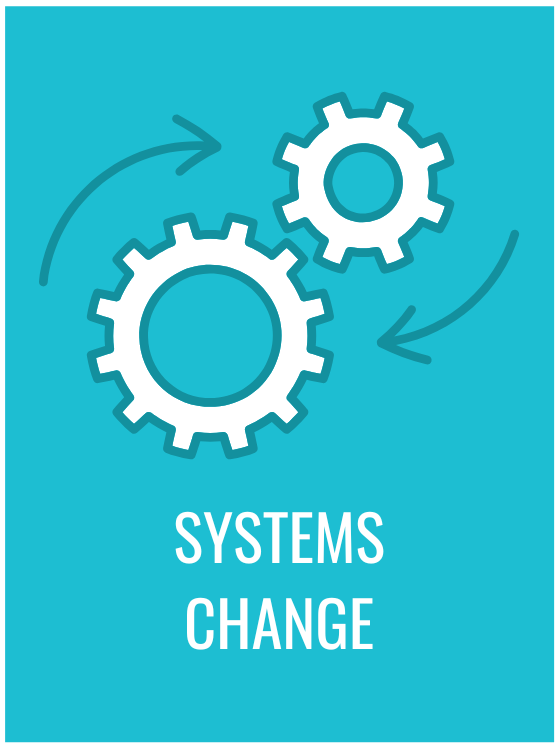 Policies and practices of local and state agencies have created ineffectiveness, inequity, and unnecessary barriers for the formerly incarcerated, impoverished and/or ALICE families. Partners aiming to effect systems change will do so by building public awareness and creating policy and practice changes at the state and local levels. Partners may be focused on any of the three topics: Financial Stability, Healthcare Utilization, or Recidivism Reduction.
Policies and practices of local and state agencies have created ineffectiveness, inequity, and unnecessary barriers for the formerly incarcerated, impoverished and/or ALICE families. Partners aiming to effect systems change will do so by building public awareness and creating policy and practice changes at the state and local levels. Partners may be focused on any of the three topics: Financial Stability, Healthcare Utilization, or Recidivism Reduction.
Partners selected to focus on systems change will implement:
• Advocacy
• Awareness Campaigns
• Best Practice Pilot Programs
• Community Forums
• Convenings
• Education
• Policy and/or Practice Change
• Success Stories
• Technology Solutions
APPLICATIONS
Applications for the Engage portfolio will open on August 1, 2025. For now, please review the guidelines and materials available.
If you have questions, please contact Tristi Charpentier, VP People-Centered Initiatives.
HAVE A QUESTION?
We’d love to hear from you! Whether you’re working on an application, want to share good news, or need to brainstorm a new idea, we appreciate every opportunity to visit and learn with you.
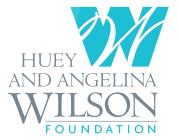
© 2025 Huey and Angelina Wilson Foundation
Website designed by dezinsINTERACTIVE

